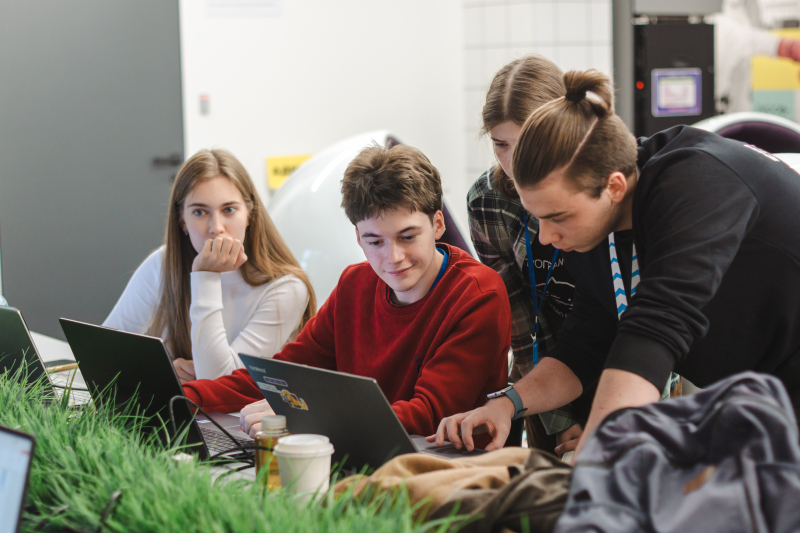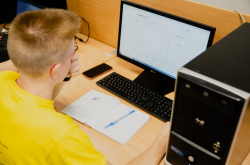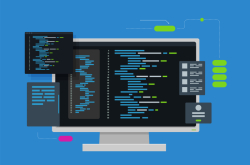Contents:
Why participate
I Am a Professional is a national competition for students majoring in a variety of fields, including engineering, humanities, natural sciences, pedagogy, agriculture, and medicine. Over a million students participated in the contest through its seven seasons.
Enrollment benefits. All medalists, winners, and prize winners will be granted enrollment privileges when applying to Master’s and PhD programs at Russian universities. In 2024, ITMO welcomed 37 contest medalists and winners, as well as 95 final round participants.
Internships. This season, all students who passed the selection stage may avail themselves of the career platform where they can find a job or internship offer from top Russian companies.
Monetary prizes. Golden medalists will be awarded 200,000-300,000 rubles, silver medalists – 150,000-200,000 rubles, and bronze medalists – 100,000-150,000 rubles.
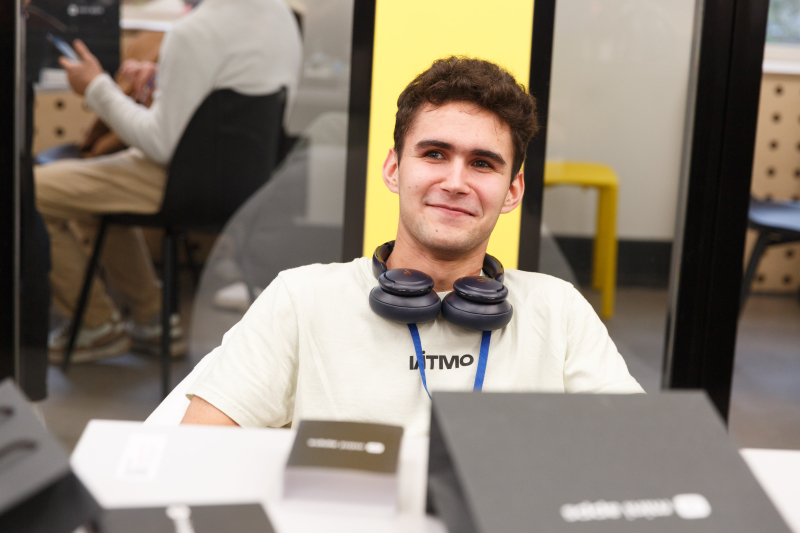
Credit: ITMO Mediaportal
Who can join and how
The contest is for Bachelor’s, Master’s, and Specialist’s students of Russian universities and higher education institutions, regardless of their form of studies.
The registration is underway until November 12.
To join the competition, students need to:
-
visit the official website and click the corresponding button;
-
create a new Yandex account or log in with an existing one;
-
fill out the registration form and choose the desired tracks;
-
upload a scanned copy of student ID or certificate confirming student status.
Former finalists don’t have to go through the selection round, however this option isn’t available at all tracks. The list of eligible tracks will be published on the competition’s website soon.
The competition offers a choice of 70+ tracks to choose from. ITMO University is responsible for Robotics, Information & Cyber Security, and Programming & Information Technologies. Last season, 44,000 participants registered for these tracks.
The tracks’ general partner is Sberbank.
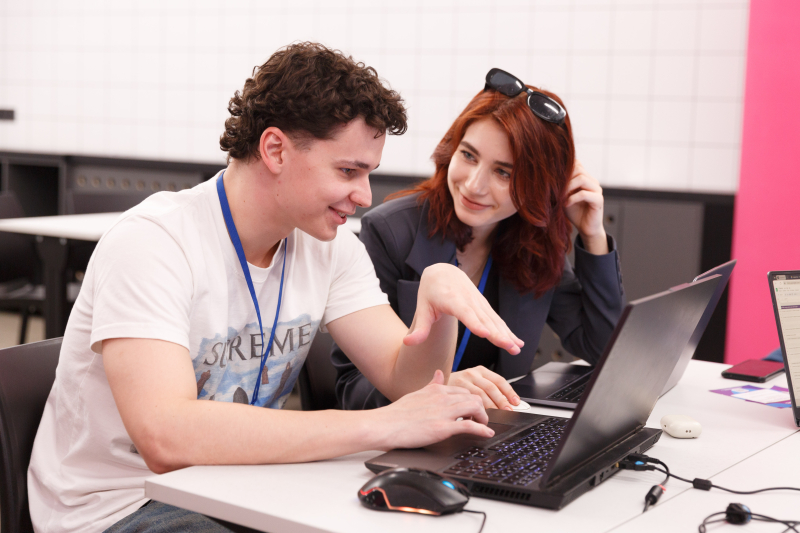
Credit: ITMO Mediaportal
Structure
The track is held in two stages:
Qualifying round. The round is held online. It lasts three hours and includes 10 tasks.
The theoretical section is made up of tasks in discrete mathematics, algorithms, and data structures. Whereas the applied section focuses on a range of fields. These are databases, operating systems, telecommunications technologies, and machine learning (for Bachelor’s students) and multithreaded programming, data warehouses, machine learning, and UML (for Master’s students).
Both Bachelor’s and Master’s students will have programming cases within the applied section that account for at least one-third of the overall tasks.
Finals. The final round contains the same amount of tasks and topical distribution as in the qualifying round; at this stage, participants also work remotely, however, they have four hours to finish their tasks while being supervised by a proctoring system.
What’s new this year
This year, Bachelor’s students in the qualifying and final rounds will have one less task in programming and computer architecture, i.e. the overall number of tasks will decrease from 12 to 10. No changes are expected for Master’s students.
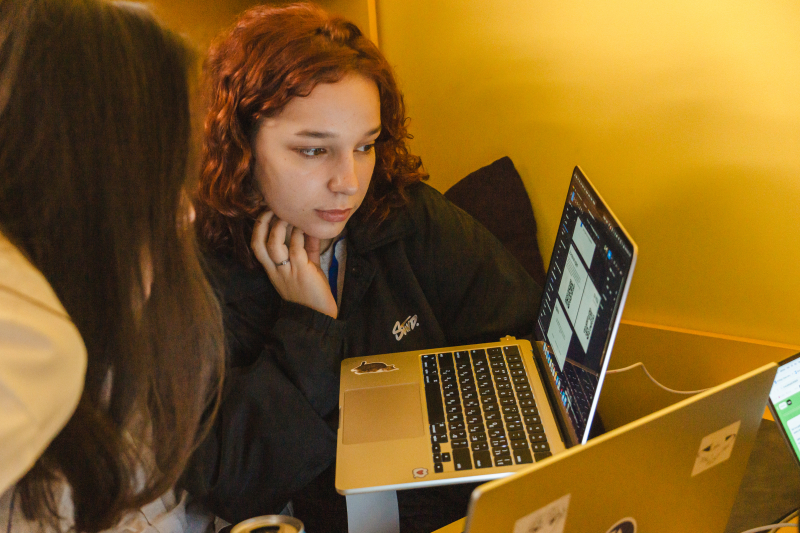
Credit: ITMO Mediaportal
Tasks
For Bachelor’s students
-
Optimize an SQL query and assess which parameter values will give a certain result;
-
By examining a given algorithm or a resource management model in an operating system, figure out when the computing node’s resources will run out or which parameter values will make it perform most efficiently;
-
Assess the performance of a computer network with desired parameters based on its documentation and a description of its separate protocol or model;
-
Figure out a formal mathematical model for solving problems using cluster, frequency, factor, and other sorts of analysis, and then solve a specific problem;
-
Solve tasks using graph theory, automata theory, and other branches of discrete mathematics;
-
Write code based on standard algorithms and the specifics of their implementation or develop an optimal algorithm independently.
For Master’s students
-
Evaluate the parallelization of computations and data integrity for a given algorithm, including figuring out what conditions will make the solution unstable and lead to a failure or what types of failures might potentially occur;
-
Analyze the architecture of a data warehouse and evaluate its capabilities for dealing with large volumes of data;
-
Analyze a mathematical model and use it to solve a problem;
-
Compare and detect inconsistencies between a system’s architecture and its functional requirements using UML modeling.

Credit: ITMO Mediaportal
How to prepare
Examine tasks from previous years. You can find specifications (task descriptions and requirements) and demo tasks for Bachelor’s and Master’s students on the official website.
Watch the contest’s webinars. In them, experts explain tasks from previous year’s qualifying and final rounds and pinpoint what should be paid attention to.
Practice solving programming tasks. The contest tasks require efficient use of algorithms and data structures in a programming language of your choice and the ability to implement them. For practice, go here.
Brush up on the basics. Here’s a list of recommended literature for Bachelor’s and Master’s students by the contest’s organizers.
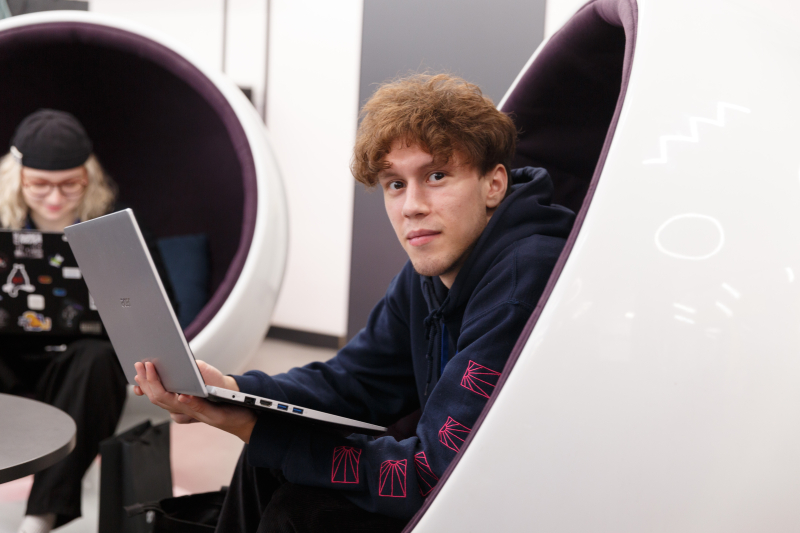
Credit: ITMO Mediaportal
Career paths for coding enthusiasts
ITMO University offers 30 Master’s programs at the intersection of IT and other fields, AI, software engineering, infocommunications, web services, or bioinformatics, and a full immersion in software development. Most of the programs are implemented in partnership with industry leaders.
Highload Systems (corporate online Master’s program, in partnership with Yandex). The program is designed to produce mid-level developers, full-stack developers, and team leads capable of designing and implementing complex software systems.
Web Scale Systems (corporate Master’s program, in partnership with VK). The program trains specialists in distributed highload systems who can design, develop, ensure the quality of and support administrative web services.
Software Engineering (corporate Master’s program, in partnership with Gazprom Neft). The program is for future mid-level and senior developers who want to apply their expertise in machine learning, computer vision, algorithms, compilers, and graphic interfaces for research and solving applied tasks at IT companies.
Tools for Software Development and Analysis (corporate Master’s program, in partnership with Yadro). Students of the program will learn to develop multifunctional tools for developers – code analyzers, fuzzers, IDEs, and their elements, debuggers and profilers – and be qualified to work as IDE and compiler developers or architects, quality or fuzzing engineers, or QA automation specialists.
Programming and Internet Technologies (Master’s program). The program is implemented by ITMO’s Information Technologies and Programming Faculty – the alma mater of the world's only seven-time ACM ICPC champions – and trains experts who can develop information systems, as well as implement and maintain global-level systems.
